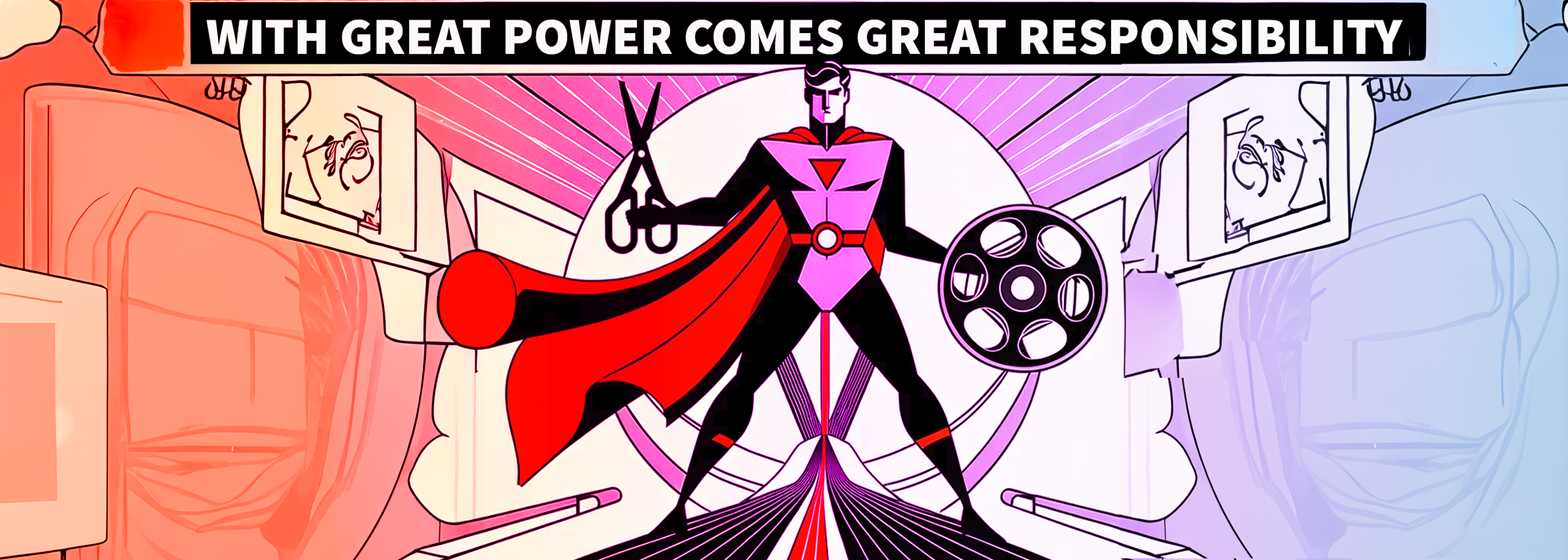



with great power comes great responsibility
In the realm of audio content, especially podcasts and radio interviews, the editing process is a powerful tool. Editors have the power to reshape, refine, and reformulate the raw content into a polished final product. But with great power comes great responsibility. Editing can enhance the listener's experience by removing redundancies, mistakes, and irrelevant content. However, it also brings forth ethical considerations. The line between presenting a coherent narrative and manipulating reality can be blurry. This article delves deep into the ethical quandaries surrounding audio editing.
Preservation of Authenticity
Audio editing can dramatically shift the tone and message of an interview. It's tempting to make someone sound sharper, funnier, or even more controversial. But doing so can distort the true essence of what was said, potentially misleading listeners. Ethical editing ensures that the spirit and intent of the speaker's words are preserved, even if certain parts are trimmed for brevity
Avoiding Misrepresentation
It's possible to stitch together parts of a conversation in a way that the speaker never intended. Such out-of-context editing can be misleading and unjust to the speaker. An ethical editor will avoid creating a false narrative or intentionally taking words out of context to serve a particular agenda.
Transparency is Key
Sometimes, for various reasons – be it clarity, relevance, or time constraints – significant edits are necessary. In such cases, it's crucial to be transparent with the audience. This can be achieved by using editing cues or making it clear in the content or show notes that the audio has been edited for clarity.
Consideration for the Interviewee
Guests bring their expertise, experiences, and perspectives to the table, often in unscripted and spontaneous manners. While it's natural for them to sometimes say things they later regret or feel wasn't articulated well, ethical editing respects their contributions. Editors should offer them opportunities to restate their thoughts or, in some cases, edit out potentially harmful or grossly inaccurate statements. Equally important is enhancing their intent, ensuring that they come across as clearly and effectively as they intended, thus presenting them in the best possible light
Consent and Respect
If a guest or interviewee requests that certain parts of their interview be excluded from the final product, those wishes should be honored unless there's a significant public interest reason for including it.
Context is King
Without proper context, even a genuine statement can sound misleading. It's crucial that any edits don't remove the necessary context for understanding a statement or event.
The "Umms" and "Ahhs"
Many people, when speaking extemporaneously, use filler words or have long pauses in their speech. Some editors argue that removing these enhances the listening experience, while others believe that they're a part of genuine, natural conversation and should be retained. The middle ground might be to reduce excessive fillers but retain enough to keep the conversation sounding real.
Sound Effects and Manipulation
Using sound effects can add depth and texture to audio content. However, when used excessively or misleadingly – for instance, inserting audience laughter or applause where there was none – it borders on deceit. Editors should use sound effects judiciously and always in service of the truth.
The Responsibility of Platform
With the rise of podcasts and independent radio shows, many creators have a direct line to their audience without the oversight traditionally present in larger media organizations. This increased freedom means that ethical considerations are even more critical. Audiences trust creators to present a truthful, unskewed version of events.
In conclusion
The power of editing lies in its ability to craft a narrative. But it's essential to remember that with this power comes the responsibility to uphold the truth, respect participants, and maintain transparency with the audience. As the world of audio content continues to grow, a solid ethical foundation is crucial to maintaining trust and credibility in the industry.
Bibliography
McLeish, R. (2015). Radio Production.
Stern, S. & Dillman Carpentier, F. R. (2019). Voicing the Podcast: Audio, Authenticity and the New Sports Commentariat.
Llinares, D., Fox, N., & Berry, R. (2018). Podcasting: New Aural Cultures and Digital Media.
And a list of key terms and podcasts for easy reference: